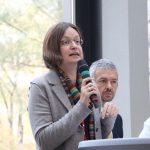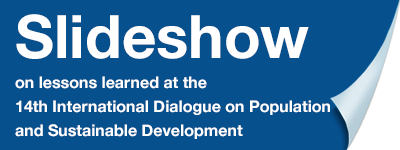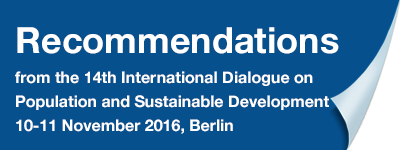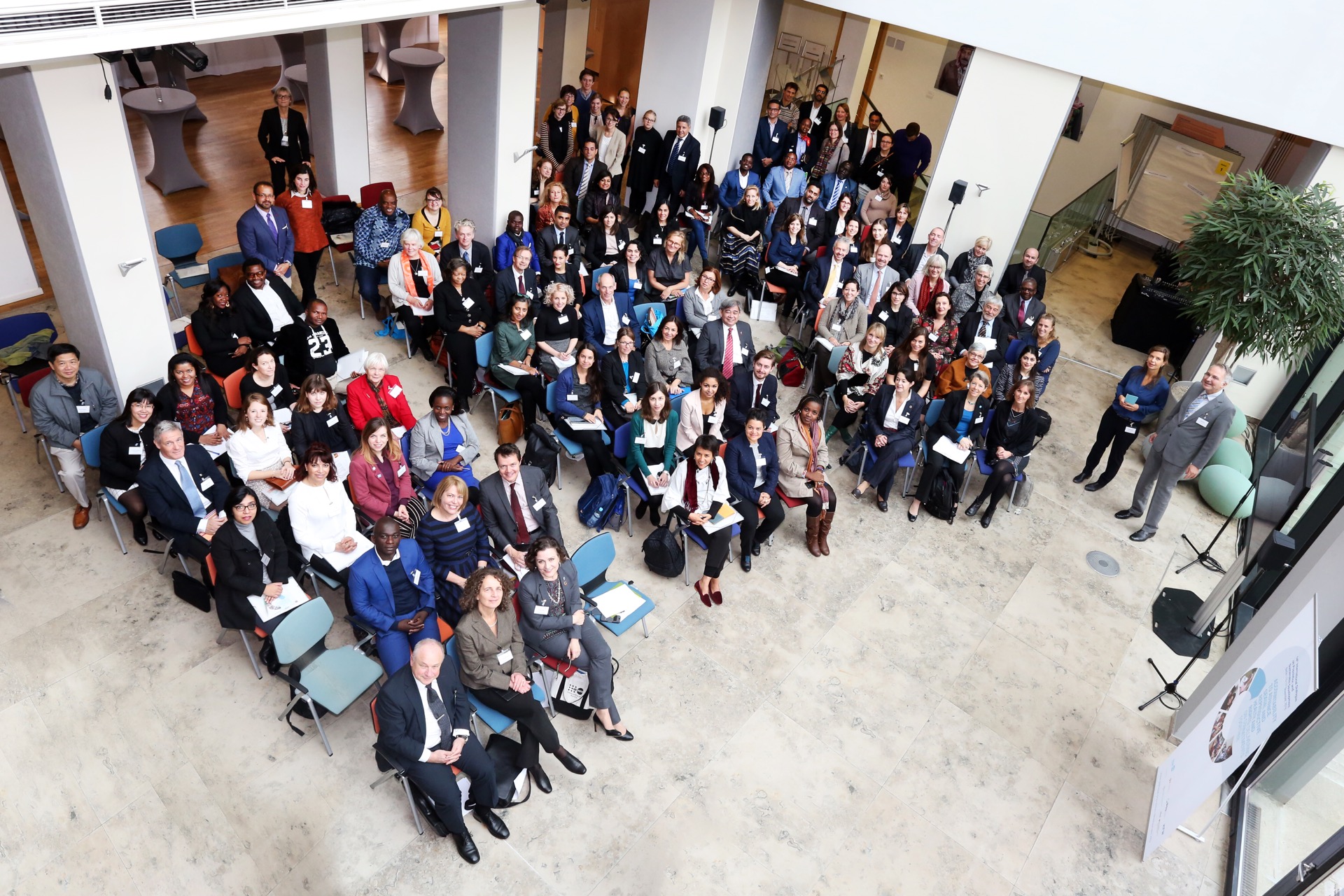Improved accountability to advance Sexual and Reproductive Health and Rights (SRHR)
Opening statements and a keynote speech from Laura Londén (UNFPA)
The 14th International Dialogue on Population and Sustainable Development was a two-day meeting held on November 10th and 11th in Berlin aimed at promoting the harmonisation of follow-up and review mechanisms as a key element in achieving the SRHR-related goals of the 2030 Agenda on Sustainable Development.
The event brought together stakeholders from governments, civil society organisations and multilateral institutions under the banner ‘Accountability to Advance Sexual and Reproductive Health and Rights: Delivering on Commitments Together’. Delegates tackled the complicated architecture of follow-up and review mechanisms in the realm of SRHR and shared strategies for gathering, reporting and making smart use of data. They also challenged each other on divisive issues such as how to make an economic case for SRHR while remaining committed to human rights, and how to use data in political arenas currently perceived to be dismissive of facts.

In her opening remarks, Inge Baumgarten from the Deutsche Gesellschaft für Internationale Zusammenarbeit (GIZ) called on governments to respect, protect and fulfil their SRHR obligations “so that all people can live self-determined lives, free from coercion and free from discrimination”. She acknowledged the limitations on millions of people, particularly girls and women, to claim these rights, and highlighted opportunities for the advancement of SRHR through better accountability. “We are faced with a complex and diverse landscape of international, regional and national review mechanisms. These mechanisms provide policies and guidance but also a space for mutual learning, and adaptation.”

Her comments were placed in context by Klaus Brill, Vice President of Corporate Commercial Relations at Bayer HealthCare. Brill applauded the international community for securing access to modern contraception for 300 million women in the world’s 69 poorest countries. He encouraged delegates to use the two-day dialogue to build strong alliances, and to develop their ability to gather and analyse data, in order to achieve success on SRHR goals by 2030.
We are all accountable to a ten year old girl

Keynote speaker Laura Londén, the Assistant Secretary-General and Deputy Director of the United Nations Population Fund (UNFPA), helped root the technical and analytical nature of the work ahead in the experiences of women and girls. “A girl who was 10 in 2015, when the SDGs were endorsed by the global community, will be 25 when the goals are to have been achieved,” she explained. “In many ways, the life trajectory of a 10-year old girl will be the true test of whether the 2030 Agenda for Sustainable Development is a success—or failure. We are, all and everywhere, accountable to this girl.”
Londén drew attention to communities where girls at the age of 10 are not seen for their potential, but rather as a commodity that may be sold, traded or trafficked – for marriage, bearing children, free labour, or sexual exploitation. “Achieving the SDGs and the International Conference on Population and Development Programme of Action is paramount to ensuring that this 10-year old girl reaches her full potential,” Londén told the delegates. “Countries cannot end poverty if girls are unable to make a safe and healthy transition from adolescence to adulthood and become productive members of their communities and nations.”
She went on to highlight the role of the High Level Political Forum (HLPF) in reinforcing country ownership for implementing and reporting on the SDGs, and outlined the challenges presented by the lack of statistical capacity for data collection. “Aggregate gains in national numbers masked inequalities within countries,” she explained. “This has been recognised, including through the ICPD Beyond 2014 Review, as a limitation of national reporting for the MDGs.”[1]
She offered a solution in the form of in-depth reviews that demand thematic reports with disaggregated data, such as the review process of the ICPD. These, she told the delegates, provide an essential global platform to highlight gaps and inequalities, share best practices, and draw attention to regional and national variations and specificities. > Speech of Laura Londèn
A vibrant exchange of ideas
Delegates then spent the first day examining existing thematic and regional review mechanisms - and assessing the degree to which they are binding for states.

In an expert talk, Marianne Beisheim from the German Institute for International and Security Affairs (SWP) explained that while monitoring tends to be about assessing data for verification, follow-up and review is about interpreting and analysing data, determining causal relationships, identifying successes and failures, capturing best practices, addressing challenges and, finally, agreeing on areas for capacity development.
“This informs the change management we might need,” Beisheim explained. She continued that while accountability in the human rights context is about responsibility of governments as duty bearers to their citizens, it had been a hard fight to secure accountability within the 2030 Agenda and the Sustainable Development Goals (SDGs). A number of member states positioned themselves against peer-to-peer review and intra-state accountability, because of concerns about intrusions into state affairs.
Following this talk, delegates broke into smaller rotating discussions, where they shared knowledge on mechanisms that aim at increasing accountability for the achievement of SRHR-related goals. Alanna Galati, a Senior Policy Manager at the Guttmacher Institute, said this exchange was particularly useful. “There was a lot of discussion about how to use human rights mechanisms to promote SRHR, specifically the Universal Periodic Review,” she said. “It was really helpful to hear about all the different processes where SRHR can be linked, as well as where we can advocate for a broad SRHR agenda. And because I do policy work, it gives me a lot of different touch-points to follow-up on and make sure SRHR is included.”
The following day was devoted to identifying solutions and promoting harmonisation in order to advance SRHR through good data and accountability. Many of those ideas have been captured in the following publication, with one article devoted to each major event in the two-day programme.
[1] MDGs = Millennium Development Goals, previous Agenda of the UN



